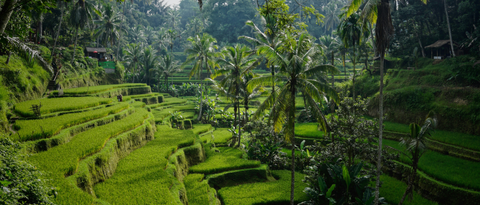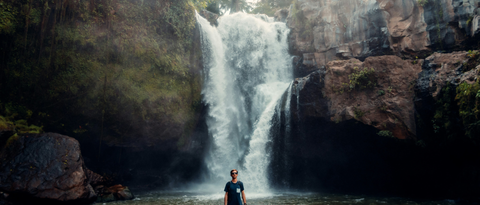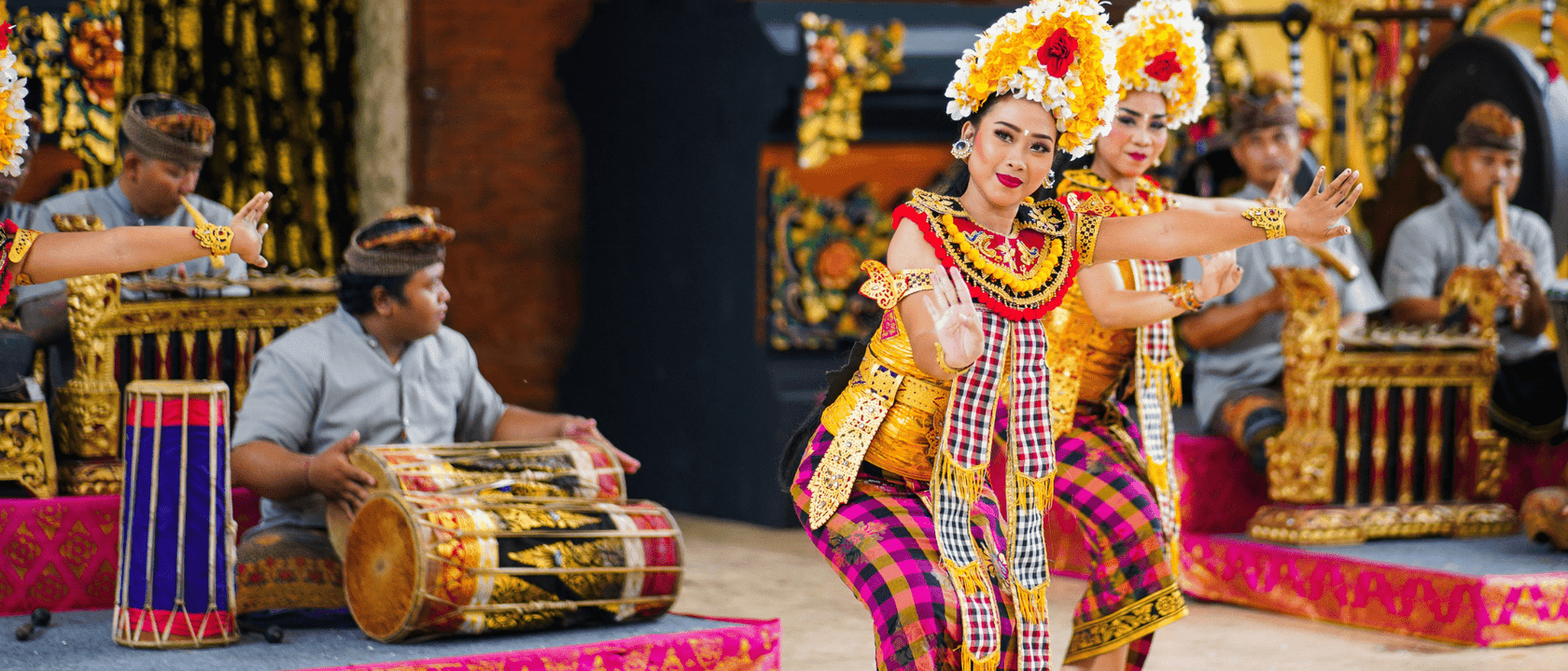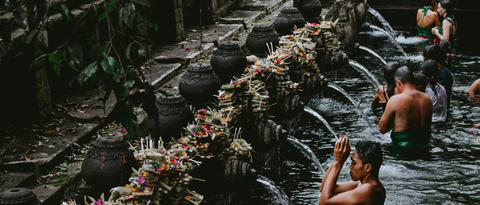Bali Water Safety: What Every Traveler Needs to Know About Drinking Water in Bali
Bali, the "Island of the Gods," is a dream destination for millions. Its stunning beaches, vibrant culture, and lush landscapes draw visitors from across the globe. However, amid the excitement of planning your Bali adventure, one crucial question often arises: "Can you drink the water in Bali?"
The short answer is a definitive NO. Bali's tap water is not safe for direct consumption by travelers. Relying on unsafe water sources can quickly turn your dream trip into a nightmare, often leading to common traveler's ailments like "Bali Belly," also known as traveler's diarrhea, which is a frequent health complaint among visitors to developing countries (learn more from the CDC on Traveler's Diarrhea.)This comprehensive guide will explain why Bali's water is unsafe, explore traditional and modern purification methods, and show you how to ensure safe and great-tasting drinking water throughout your Bali trip, especially with a reliable water purifier bottle like Water-to-Go.
Why Bali Tap Water Is Not Safe to Drink
Despite its beauty, Bali faces significant challenges with its water infrastructure. The tap water is typically drawn from local sources and is often not treated to international safety standards for drinking (refer to WHO guidelines on drinking water quality). This means it can contain a cocktail of harmful contaminants that can lead to health issues for unprepared travelers.
Common Contaminants in Bali Tap Water:
- Bacteria: Such as E. coli and Salmonella, causing severe gastrointestinal distress.
- Viruses: Including Hepatitis A and Rotavirus, leading to serious illnesses.
- Protozoa: Like Giardia and Cryptosporidium, which cause prolonged and unpleasant "Bali Belly" symptoms.
- Heavy Metals: Due to industrial or agricultural runoff, potentially including lead and arsenic.
- Pesticides & Chemicals: From agricultural activity, contaminating water sources.
- Microplastics: Increasingly prevalent in water sources worldwide, including Bali.
The critical takeaway: you cannot tell if water is contaminated just by looking at it. Clear water does not equal safe water.

Common Ways Travelers Try to Purify Water in Bali (and Their Limitations)
Travelers often explore various methods to make water safe in Bali, but each has its pros and cons.
1. Bottled Water: Convenience at a Cost
- Pros: Readily available, seemingly safe.
-
Cons:
- Environmental Disaster: Bali, like many popular tourist destinations, struggles with plastic waste. Millions of single-use plastic bottles contribute significantly to landfill and ocean pollution, impacting the island's natural beauty and ecosystems (read more about Bali's plastic waste challenge from National Geographic.)
- Costly: Buying bottled water daily adds up significantly over your trip.
- Reliability Issues: Not all bottled water is truly safe; some brands have been found to contain contaminants or be improperly sourced.
2. Boiling Water: Effective but Impractical
- Pros: Kills most bacteria, viruses, and protozoa if brought to a rolling boil for at least 1 minute (3 minutes at higher altitudes).
-
Cons:
- Time-Consuming: Requires significant time and fuel.
- Inconvenient: You can't carry enough boiled water for a full day of exploration, nor can you easily boil water on the go.
- Doesn't Remove Impurities: Boiling does not remove sediment, chemicals, heavy metals, or microplastics.
- Taste: Boiled water can have a flat taste.
3. Chemical Purification (Tablets/Drops): Outdated & Unpleasant
- Pros: Lightweight and compact.
-
Cons:
- Long Waiting Times: Requires 30 minutes to 4 hours before water is safe to drink.
- Unpleasant Taste: Often leaves a strong, chemical, and generally disliked taste (especially iodine).
- Limited Removal: Only kills some microorganisms; does NOT remove viruses (in all cases), microplastics, heavy metals, or other dissolved chemicals.
4. UV Purification Pens: Requires Specific Conditions
- Pros: Kills most microorganisms.
-
Cons:
- Requires Batteries: Relies on power, which can be an issue.
- Water Must Be Clear: Ineffective in cloudy or turbid water, as UV light cannot penetrate particles.
- No Physical Removal: Doesn't remove sediment, microplastics, chemicals, or heavy metals.
The Water-to-Go Advantage: Your All-in-One Solution for Bali Water Safety
A Water-to-Go purifier bottle stands out as the most comprehensive, convenient, and environmentally friendly solution for safe drinking water in Bali for personal use. Unlike other methods, Water-to-Go bottles offer a 3-in-1 filtration system that removes a vast array of contaminants instantly.
Why Water-to-Go is Ideal for Bali Travelers:
- Comprehensive Protection: Its advanced filter is highly effective at removing bacteria, viruses, and protozoa, along with microplastics, heavy metals (like lead and arsenic), and chemicals (like chlorine and pesticides). This broad spectrum of removal is crucial for Bali's diverse water contaminants.
- Instant Hydration: No waiting times! Simply fill your bottle from any freshwater source (tap, stream, hotel sink, etc.) and drink immediately. The purification happens as you sip.
- No Unpleasant Taste: The activated carbon component ensures your water tastes clean and fresh, unlike chemically treated water.
- Sustainable Travel: By refilling your reusable Water-to-Go bottle, you drastically reduce your reliance on single-use plastic bottles, helping Bali's environment.
- Cost-Effective: One filter lasts for hundreds of liters, saving you significant money compared to buying bottled water.
- Portable and Convenient: Designed for personal use on the go, fitting easily into your daypack.

How-To: Staying Hydrated and Healthy in Bali with Water-to-Go
Ensuring safe drinking water in Bali is simple with a Water-to-Go bottle. Here’s how to integrate it into your trip:
Using Your Water-to-Go Bottle in Bali:
- Fill from Any Freshwater Source: Whether it's the hotel tap, a public water dispenser, a clear stream during a hike, or even a local's well, you can fill your Water-to-Go bottle with confidence.
- Drink Instantly: The filter works as you sip, providing purified water immediately. No need to wait for chemicals to react or for water to boil.
- Refill Throughout Your Day: Keep your bottle handy and refill it whenever you find a water source. This ensures you always have safe drinking water, avoiding dehydration in Bali's tropical climate.
Essential Water Safety Tips for Bali Beyond Drinking:
- Brushing Teeth: Always use purified water (from your Water-to-Go bottle or bottled water) for brushing your teeth. Avoid tap water.
- Showering & Bathing: Try to keep your mouth closed when showering. While unlikely to cause serious illness from incidental contact, it's best to minimize tap water ingestion.
- Food Preparation: If you're preparing your own food (e.g., washing fruits/vegetables), use only purified water.
- Ice: Be cautious with ice. Most reputable hotels and restaurants use filtered or bottled water for ice, but smaller vendors might not. When in doubt, avoid ice or ask. Your Water-to-Go bottle ensures you don't need to rely on external ice if you can purify your own water.
- Open-Air Food Stalls (Warungs): When enjoying local cuisine, observe hygiene practices. Opt for cooked dishes and avoid salads or fruits that may have been washed in tap water, unless you know they are reputable.
Frequently Asked Questions (FAQs) About Drinking Water in Bali
General Bali Water Safety Questions:
-
Q: Can tourists drink tap water in Bali?
- A: No, it is generally unsafe for tourists to drink tap water directly in Bali due to the risk of bacterial, viral, and parasitic contamination, as well as potential chemicals and heavy metals.
-
Q: What is "Bali Belly" and how can I avoid it?
- A: "Bali Belly" is a common term for traveler's diarrhea, often caused by consuming contaminated food or water (learn more from the CDC.) You can avoid it by strictly drinking purified water (like with a Water-to-Go bottle), being mindful of ice, and ensuring food is properly prepared.
-
Q: Is bottled water safe in Bali?
- A: While widely used, bottled water contributes heavily to plastic pollution in Bali. While generally safer than tap water, quality can vary, and it's not the most environmentally responsible choice.
Water-to-Go Specific Questions for Bali Travel:
-
Q: Does Water-to-Go protect against Bali's specific water contaminants like viruses and parasites?
- A: Yes, Water-to-Go's 3-in-1 filter is lab-tested and highly effective at removing viruses, bacteria, and protozoa, along with chemicals, heavy metals, and microplastics, offering comprehensive protection against Bali's waterborne threats.
-
Q: Can I fill my Water-to-Go bottle from any freshwater source in Bali?
- A: Yes, you can fill your Water-to-Go bottle from virtually any non-salt water source, including taps, streams, hotel sinks, and public water dispensers, and drink instantly.
-
Q: How does using a Water-to-Go bottle help Bali's environment?
- A: By using a reusable Water-to-Go bottle, you significantly reduce your reliance on single-use plastic water bottles, directly contributing to the reduction of plastic waste in Bali and protecting its beautiful environment.
-
Q: Does Water-to-Go make the water taste good in Bali?
- A: Yes, the activated carbon layer in the Water-to-Go filter removes chlorine and other impurities that affect taste and odor, ensuring your water tastes clean and fresh, unlike local tap water or chemically treated water.

Conclusion: Make Safe Hydration a Priority in Bali
Don't let concerns about water safety dampen your Bali experience. While the tap water is unsafe, you have highly effective and convenient solutions available. Relying on single-use plastic bottles is an environmental burden, and traditional methods often fall short in comprehensive protection or convenience.
A Water-to-Go purifier bottle offers the ultimate peace of mind. It's a single, sustainable device that provides instant access to safe, clean, and great-tasting drinking water from virtually any freshwater source in Bali. By choosing Water-to-Go, you protect your health, save money, and contribute to a more sustainable Bali. Pack smart, stay hydrated, and enjoy the magic of the Island of the Gods with confidence!
Sources and Additional Information
- CDC - Traveler's Diarrhea: General information on causes, symptoms, and prevention of traveler's diarrhea.
- WHO - Guidelines for Drinking-water Quality: Provides global guidelines on drinking water safety and quality management.
- National Geographic - Plastic Waste in Bali: An article discussing the challenges and efforts related to plastic pollution in Bali.


